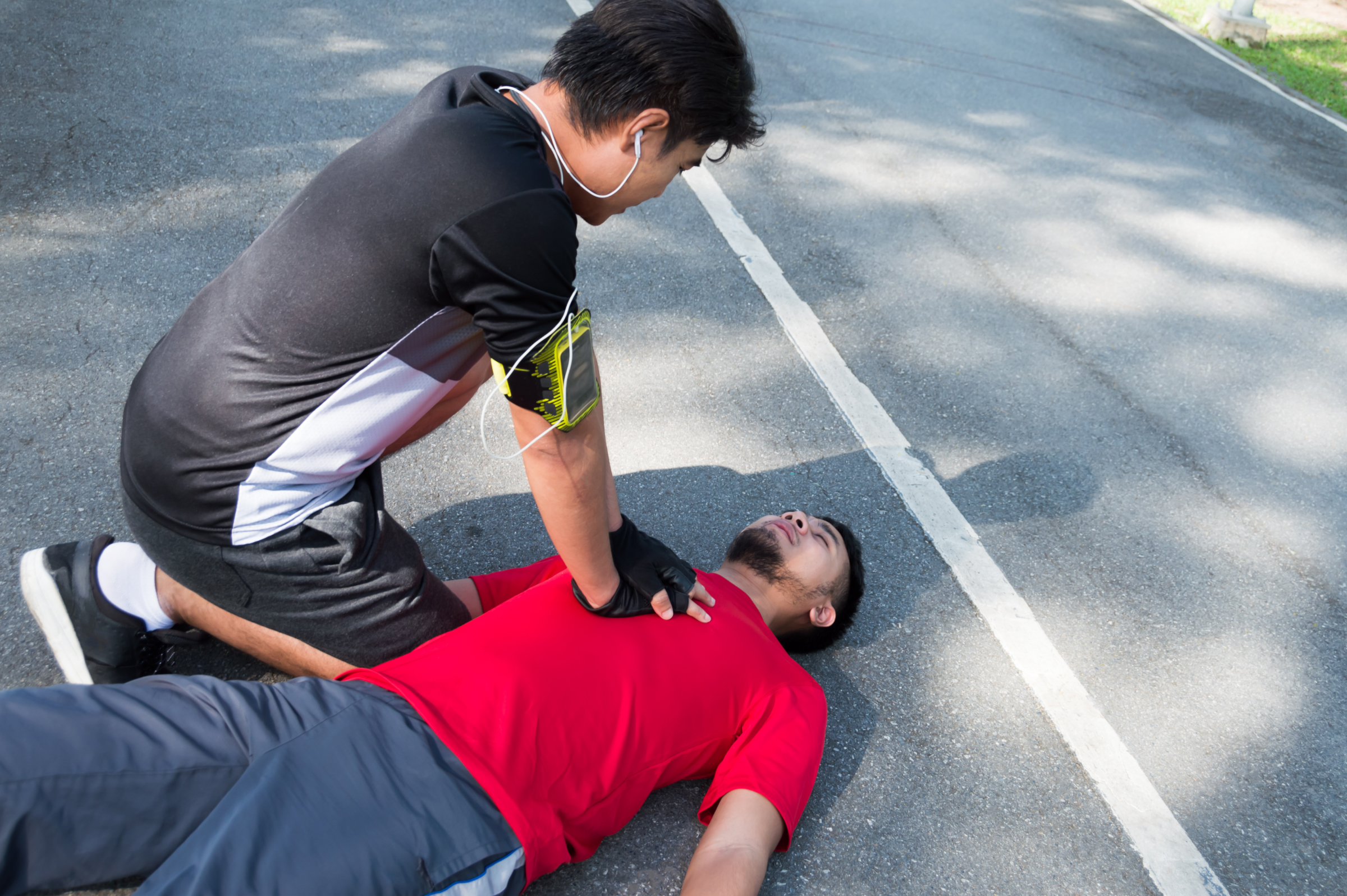The dangers of sports-related cardiac arrest have been spotlighted, demanding attention and action from athletes, coaches, and fans alike. The collapse of Buffalo Bills’ safety Damar Hamlin mid-game earlier this year, and the terrifying ordeal faced by Bronny James Jr. during his USC Men’s basketball practice last week, have shaken the athletic community to its core.
Hamlin’s cardiac arrest was during Monday Night Football in January, where the 25-year-old collapsed following a tough tackle. He received CPR on the field before being taken into what became a nine-day hospital stay in the intensive care unit. After recovery, Hamlin revealed in April that the condition commotio cordis was what caused his heart to stop – a condition where an abnormal heart rhythm and cardiac arrest happen immediately upon an object struck the chest directly over the heart (in Hamlin’s case, a football helmet). Commotio cordis is typically caused by getting hit on the left side of the chest with a baseball, hockey puck, lacrosse ball, or other small and hard sports equipment.
Coaches were astonished when the eldest son of Los Angeles Lakers superstar LeBron James, Bronny James Jr., suffered a cardiac arrest during basketball practice last week at the University of Southern California. It is unknown what exactly caused the cardiac arrest, but luckily, he is now in stable condition after being treated following his collapse.
According to the National Institute of Health, sudden cardiac arrest is the most common cause of sudden death in athletes, most caused by hypertrophic cardiomyopathy. However, the overall occurrence is relatively low. The rate of sudden cardiac arrest within competitive athletes is about 0.75 per 100,000 athletes per year. While it’s rare, it still remains a significant concern.
What is Cardiac Arrest?
You don’t need to have a heart condition to suffer from cardiac arrest, it can happen to anyone. Cardiac arrest occurs when the heart suddenly and unexpectedly stops beating. It’s an electrical problem where rapid, abnormal impulses override the heart’s natural rhythm. In addition, blood flow to the brain and other vital organs stops. This is incredibly dangerous and can be fatal in minutes. Chances of survival are better with immediate help so if you are ever in a situation where someone is having a cardiac arrest, call 911 and start CPR immediately. The American Health Association states that 9 out of 10 people who suffer a cardiac arrest die and survival depends on immediate CPR from a bystander.
What’s the difference between Cardiac arrest vs. heart attack?
A heart attack is a common cause of cardiac arrest. Heart attacks occur when a clogged artery disrupts the blood flow to your heart. The immediate cause of cardiac arrest is irregular heart rhythms, or arrhythmias.
Can we prevent it? You can reduce your risk of cardiac arrest by adopting a heart-healthy lifestyle to avoid the development of heart failure. The following are recommended steps for heart-healthy lifestyle:
- Eating a healthy diet
- Being more physically active
- Keeping a healthy weight
- Giving up smoking
- Keeping your blood pressure under control
- Reducing alcohol consumption
Medical intervention is possible and may prevent cardiac arrests. To correct arrhythmia, physicians can implant a medical device called an ICD (Implantable cardioverter defibrillator) to monitor your heart and manage heart rate if needed. The ICD is surgically placed under the skin of the patient connects to their heart with thin wires. In addition, medicines such as beta-blockers, or METOPROLOL can be prescribed to lower your blood pressure and heart rate. This makes it easier for your heart to pump blood to the rest of your body.
The haunting reality of sports-related cardiac arrest has brought forth a collective call for action within the athletic community. As we strive for greatness on the field or on the court, we must also prioritize the health and well-being of our athletes, acknowledging that even the fittest among us are not exempt from the hidden dangers that lie within the heart.



